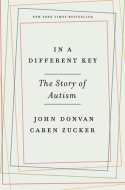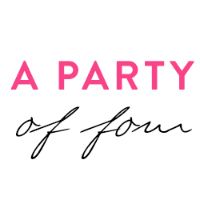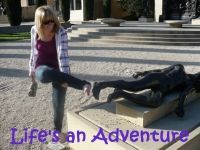Way back in January, I requested the book In a Different Key: The Story of Autism. I didn't have a chance to pick it up to read until the end of April, and I just finished it on June 6th.
Yes, it took me that long to read.
Synopsis
Nearly seventy-five years ago, Donald Triplett of Forest, Mississippi became the first child diagnosed with autism. Beginning with his family’s odyssey, In a Different Key tells the extraordinary story of this often misunderstood condition, and of the civil rights battles waged by the families of those who have it. Unfolding over decades, it is a beautifully rendered history of ordinary people determined to secure a place in the world for those with autism—by liberating children from dank institutions, campaigning for their right to go to school, challenging expert opinion on what it means to have autism, and persuading society to accept those who are different.
It is the story of women like Ruth Sullivan, who rebelled against a medical establishment that blamed cold and rejecting “refrigerator mothers” for causing autism; and of fathers who pushed scientists to dig harder for treatments. Many others played starring roles too: doctors like Leo Kanner, who pioneered our understanding of autism; lawyers like Tom Gilhool, who took the families’ battle for education to the courtroom; scientists who sparred over how to treat autism; and those with autism, like Temple Grandin, Alex Plank, and Ari Ne’eman, who explained their inner worlds and championed the philosophy of neurodiversity.
This is also a story of fierce controversies—from the question of whether there is truly an autism “epidemic,” and whether vaccines played a part in it; to scandals involving “facilitated communication,” one of many treatments that have proved to be blind alleys; to stark disagreements about whether scientists should pursue a cure for autism. There are dark turns too: we learn about experimenters feeding LSD to children with autism, or shocking them with electricity to change their behavior; and the authors reveal compelling evidence that Hans Asperger, discoverer of the syndrome named after him, participated in the Nazi program that consigned disabled children to death.
By turns intimate and panoramic, In a Different Key takes us on a journey from an era when families were shamed and children were condemned to institutions to one in which a cadre of people with autism push not simply for inclusion, but for a new understanding of autism: as difference rather than disability.
This book took me forever to read.
Sure, I started reading it at a busy time of year for a teacher, but often, I really just didn't want to even pick it up. I added it to my "want to read list" because the synopsis made it sound extremely interesting, and at first, I thought so. I actually read a good chunk of this book while sitting in a doctor's office for a few hours getting allergy testing done. I even jotted down a few notes and stuck them in the pages where the thoughts struck me!
But then, I started to just dread reading it. And then, out of sheer stubbornness, I would pick it up just to BE. DONE. ALREADY.
Yes, I'm still giving it 3 stars. It IS nonfiction after all, so it's not necessarily supposed to be an easy read. If this were fiction, I would give 2.
So what did I like? We'll head back to the couple of notes I wrote down while reading it.
At the very beginning of the book, the authors discuss words that were once used to describe mental illness. These words were, at that time, essentially clinical diagnoses. Today, these words are very "un-PC" slang terms that most decent human beings would never use to describe people with mental illness or disabilities. Words like, "...'ignoramus,'...'maniac,' 'lunatic,'...and 'spastic'..." are among them. I was just stunned that these words which are now used as insults in our society were being used in clinical terms.
Something else I learned was that many psychiatrists and others believed that autism was caused by mothers not loving their children enough. Some of the original treatments for autism, included supports for the child AND the mother. The mother would need to go to counseling sessions in the belief that helping her to love her child more would "cure" his/her autism. Fortunately, this theory was eventually put to rest as it was proven to be (basically) ridiculous.
I did enjoy this book at times for the little nuggets of information that I gained through reading. However, overall, the book just became tedious. There is a lot of history with regards to autism, and at times, it wasn't interesting to read about. With a history so long, many people are involved in the research and activism regarding autism, and at times, it was hard to keep track of who's who!
At the end of the book, the story comes back around to Donald Triplett, the first person diagnosed with autism. I enjoyed that the book did come full circle and end with the person with whom it began.
While I didn't love reading this book, I do feel that I gained a lot of information and insight into autism that I didn't know before. I would probably recommend it to others who work with people who have autism, but it's definitely not a book to sit down and read for fun.
I received this book for free from BloggingforBooks.org for review. All thoughts and opinions are my own.






















2 comments:
Sounds like you got some interesting information out of this book... I'm glad you were able to get through it!
Congrats on getting through it and learning some new facts. I have a really hard time pushing myself to finish a book when I'm struggling.
Post a Comment